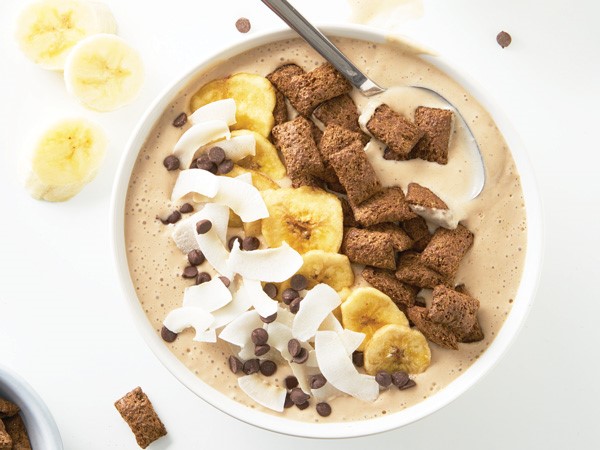Description
Learn why these specific foods help you feel happy and relieve anxiety. Hint: It's not just because they're really delicious. In fact, it has a lot to do with antioxidants, the compounds found in many fruits and vegetables that help protect your cells.
Bananas
Vitamin B6 (pyridoxine) found in bananas may help lower levels of homocysteine in your blood. High levels of this homocysteine (an amino acid) are linked to dementia and cognitive decline.
Other foods that have B6 include chickpeas, potatoes, salmon, and sweet potatoes.
Avocados
Avocados contain a good amount of vitamin E, an antioxidant that protects brain cells from free radicals caused by pollution, smoking, and food digestion.
Other foods that have vitamin E include almonds, kiwi, spinach, sunflower seeds, and trout.
Tomatoes
Both canned and fresh tomatoes have abundant vitamin C and the antioxidant lycopene, which helps protect brain cells.
Other foods that have lycopene include grapefruit, guavas, mangoes, papayas, persimmons, red bell peppers, and red cabbage.
Chicken Breasts
Studies link low blood levels of the mineral selenium, an antioxidant, to a decline in mental function, especially in people over 70. Chicken and other poultry also contain tryptophan, a precursor of the feel-good hormone serotonin.
Other foods that have selenium include Brazil nuts, oysters, lean pork chops, shiitake mushrooms, shrimp, steak, tofu, tuna, and whole wheat pastas.
Spinach
Folate found in spinach helps protect again depression. People with folate deficiencies may respond less favorably to antidepressants treatment than those with normal levels.
Other foods that have folate include asparagus, black-eyed peas, Brussels sprouts, kidney beans, oranges, and fortified cereals and breads.
Pistachios
Pistachio nuts contain lutein which repairs damage in the brain caused by free radicals, unstable molecules, smoking, and pollution.
Other foods that have lutein include asparagus, broccoli, Brussels sprouts, carrots, green peas, kale, lettuce, pumpkin, and summer squash.
Broccoli
Broccoli contains a good amount of vitamin A, an antioxidant that repairs cell damage from environmental toxins and ultraviolet rays.
Other foods that have vitamin A include apricots, butternut squash, cantaloupe, carrots, leafy greens, peas, red bell peppers, spinach, and sweet potatoes.
Salmon
The omega-3 fatty acids found in salmon help form healthy nerve cells. These fats are linked to lower risks of depression.
Other foods that have omega-3 fats include canola oil, chia seeds, flaxseeds, tofu, and walnuts.
Tuna
Tuna contains vitamin B1 (thiamine) which helps protect memory loss and confusion. A deficiency of B1 can even result in nerve damage in the hands and feet.
Other foods that have B1 include acorn squash, asparagus, black beans, brown rice, flaxseeds, green peas, navy beans, pork chops, salmon, and sunflower seeds.
Eggs
Choline found in eggs can help regulate mood and muscle movements and is associated with verbal and visual memory.
Other foods that have choline include broccoli, cauliflower, chicken breast, dairy milk, green beans, mackerel, navy beans, pork chops, salmon, shrimp, and tuna.
Strawberries
These bright red berries are full of vitamin C, another antioxidant that fights unstable molecules in the brain. The body isn't able to make vitamin C on its own, so including vitamin C-rich foods in the diet is important.
Other foods that have vitamin C include bell peppers, blueberries, broccoli, Brussels sprouts, guavas, kale, kiwi, mangoes, oranges, papaya, pineapple, snow peas, strawberries, tomatoes, and watermelon.

